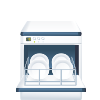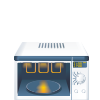In the realm of cholesterol, there are 2 key kinds that often steal the limelight: low-density lipoprotein (LDL) cholesterol as well as high-density lipoprotein (HDL) cholesterol. While both play important functions in the body, this write-up will certainly concentrate on LDL cholesterol— what it is, its importance, and just how to preserve a healthy and balanced equilibrium.
LDL cholesterol, aptly nicknamed «bad cholesterol,» refers to the low-density lipoproteins that transport cholesterol from the liver to numerous cells throughout the body. These lipoproteins are included lipids (fats) and proteins as well as are in charge of making sure that cells obtain the essential cholesterol to perform essential functions.
The Role of LDL Cholesterol
While LDL cholesterol plays an important function in our bodies, excessive levels can trigger a build-up of cholesterol in the arteries. This build-up, called plaque, can narrow as well as set the arteries, leading to a problem called atherosclerosis. In time, atherosclerosis can limit blood flow, possibly causing serious wellness difficulties.
However, it is very important to keep in mind that not all LDL cholesterol is hazardous. Different subtypes exist within the LDL cholesterol classification, consisting of little, dense LDL bits as well as large, fluffy LDL bits. Small, thick LDL fragments are more probable to pass through the arterial walls as well as contribute to plaque formation, while large, fluffy LDL particles are typically considered much less damaging.
When LDL cholesterol levels become raised, there is an increased risk of creating several wellness conditions, consisting of:
- Coronary artery condition (CAD)
- Heart attack
- Stroke
- Peripheral artery disease (PAD)
As a result, it is crucial to preserve healthy LDL cholesterol degrees to decrease the danger of these life-threatening conditions.
What Figures Out LDL Cholesterol Degrees?
A selection of factors can affect LDL cholesterol levels, including genetics, way of life selections, as well as underlying wellness conditions. Right here are some key elements that can impact LDL cholesterol:
- Diet plan: Consuming foods high in saturated and trans fats, such as red meat, full-fat dairy products, as well as deep-fried foods, can raise LDL cholesterol levels.
- Physical inactivity: Leading an inactive lifestyle can add to higher LDL cholesterol degrees as well as reduced HDL cholesterol levels.
- Smoking cigarettes: Smoking damages para que sirve otovix blood vessels as well as reduces HDL cholesterol, boosting the danger of atherosclerosis as well as heart disease.
- Weight problems: Being obese or obese can result in greater LDL cholesterol levels.
- Genes: Familial hypercholesterolemia and various other hereditary conditions can cause high LDL cholesterol levels, also in individuals with a healthy lifestyle.
- Age as well as sex: As individuals age, their LDL cholesterol levels often tend to increase. Guy typically have greater LDL cholesterol levels than premenopausal females.
Managing LDL Cholesterol Degrees
The good news is, there are a number of efficient means to handle and also preserve healthy LDL cholesterol levels:
- Consuming a heart-healthy diet: Choose foods rich in soluble fiber, such as fruits, veggies, whole grains, and also legumes. Select lean sources of protein and minimize the consumption of saturated and trans fats.
- Regular exercise: Take part in moderate-intensity cardio exercise for at the very least 150 mins each week, or vigorous-intensity aerobic workout for 75 mins weekly.
- Giving up smoking cigarettes: Seek expert aid or sign up with smoking cessation programs to stop smoking cigarettes and also enhance total cardiovascular health and wellness.
- Weight administration: Preserve a healthy weight via a balanced diet regimen and also regular workout.
- Medicine: In instances where way of life adjustments are insufficient, medical care specialists may prescribe drugs, such as statin medications, to control LDL cholesterol levels.
Conclusion
LDL cholesterol, often described as «poor cholesterol,» plays a substantial role in the development of atherosclerosis and related cardiovascular diseases. Keeping healthy and balanced LDL cholesterol levels is crucial for reducing the risk of cardiovascular disease, stroke, and also various other problems. By adopting a heart-healthy way of living, integrating regular exercise, as well as making cautious dietary options, individuals can successfully manage their LDL cholesterol levels and advertise their overall cardiovascular health.








